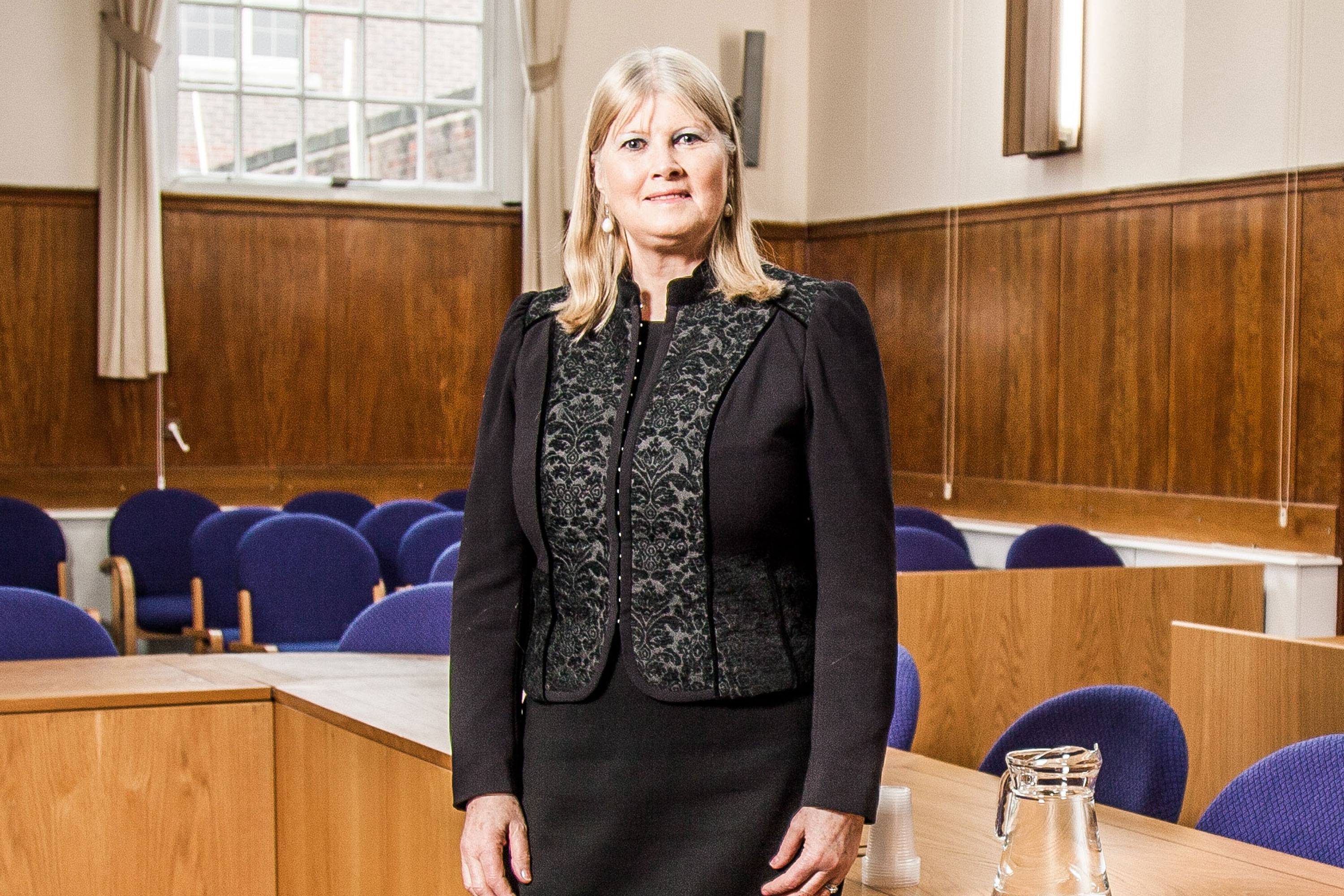Presiding over a coroner’s court

Profile: Dr Frances Cranfield

Role Assistant coroner in Hertfordshire since 1999 and a GP partner in Welwyn Garden City. Expert witness for civil and criminal courts and the GMC, an RCGP council representative and president of the Clinical Forensic and Legal Medicine section of the Royal Society of Medicine
Hours worked Up to one session a week as an assistant coroner (though often in blocks) and four-and-a-half sessions per week as a GP partner
8.00
My job is to fill in when the coroner is away. Today he is on holiday and I’m in the chair for a few days. I make my way through the morning rush hour to our coroner’s office and court in Hatfield, which serves the whole of Hertfordshire. The team of dedicated coroner’s officers is already in place and the phones are ringing furiously as GPs and hospital trusts report deaths.
9.45
I have three inquests to open in court and adjourn for further investigation. I give the scant detail we know on the cases. We will reopen them as soon as possible. One is an elderly gentleman found dead at home who had not been seen for a week. One is a road traffic accident. Another is a lady on a Deprivation of Liberty Safeguard (DoLS). Each patient who dies with a DoLS is deemed to die in state detention and requires an inquest.
10.00
Next is the reopening of a matter of the death of a young man. After hearing all the evidence, my finding is that he took his own life while the balance of his mind was disturbed. The press are present as it is a public hearing and the family are well known locally. His mother cries uncontrollably throughout and I adjourn once, but then press on to shorten the period of her distress. Fortunately we have a great volunteer support service for the bereaved in Hertfordshire.
11.00
The next inquest is a hospital death and both the trust and family are legally represented by barristers. We make our way through evidence from the surgeon, anaesthetist and the pathologist. I sum up and give my findings.
13.00
The court room is being used for other matters this afternoon (the coroner’s court is funded by the local authority, which also uses it for income-generating activity like weddings) so I have an afternoon to do paperwork. Just like a day in practice, sandwiches are eaten at my desk. I have to deal with a death that may be from an industrial disease, a mesothelioma (all deaths from industrial diseases must be reported to the coroner), so I order a post-mortem, get the hospital records and decide which witnesses I will call.
14.00
I deal with a matter rejected by the registrar (who registers births, marriages, civil partnerships and deaths) two days earlier. The cause of death given was aspiration pneumonia as a result of motor neurone disease, but the son said his father did not have motor neurone disease. It seems no one had sat down with the family and talked it through. The hospital records have arrived so I can sign the form confirming the given cause of death, despite the family’s lack of knowledge.
15.00
Post-mortem results in three more matters give natural causes so I can sign these off. In our area we send these post-mortem reports back to the local GPs. In Hertfordshire we have about 3,200 deaths a year. About 40% of all deaths here are reported to the coroner and in about 50% we decide a post-mortem is required.
16.00
A rejected certificate arrives from the registrar: it cites a mode of dying (rather than a cause) and an abbreviation and so is unacceptable, causing inconvenience and a possible delay in the funeral for the family. What is written on a death certificate is increasingly important for lifestyle and health choices for family members and resource allocation for health provision. We run courses on this and workshops for medical students, trainees and anyone else who needs it.
16.30
The coroner’s officers are closing down their computers at the end of another day with the usual banter – a necessity to survive in what could otherwise be a sea of overwhelming sadness. I still have some more files to go through to decide which witnesses to summon. The office is quiet now so it is easier to get this done.
20.30
At home, I have a couple of files to check for inquests tomorrow. I watch Silent Witness, then go to bed.
Pulse October survey
Take our July 2025 survey to potentially win £1.000 worth of tokens













